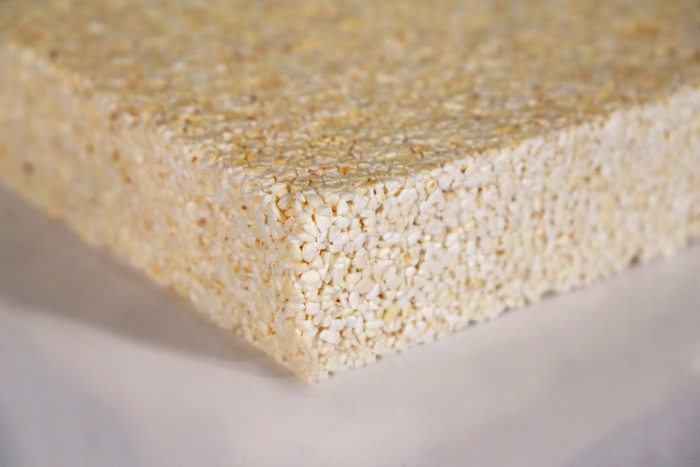Scientists invent popcorn-based home insulation material that’s waterproof and biodegradable
The plant-based material is a sustainable alternative to current building insulation products

Your support helps us to tell the story
From reproductive rights to climate change to Big Tech, The Independent is on the ground when the story is developing. Whether it's investigating the financials of Elon Musk's pro-Trump PAC or producing our latest documentary, 'The A Word', which shines a light on the American women fighting for reproductive rights, we know how important it is to parse out the facts from the messaging.
At such a critical moment in US history, we need reporters on the ground. Your donation allows us to keep sending journalists to speak to both sides of the story.
The Independent is trusted by Americans across the entire political spectrum. And unlike many other quality news outlets, we choose not to lock Americans out of our reporting and analysis with paywalls. We believe quality journalism should be available to everyone, paid for by those who can afford it.
Your support makes all the difference.Popcorn could soon be used to create sustainable insulation for buildings, replacing the current non-biodegradable materials.
Scientists have invented a method to create sustainable building insulation boards using “granulated” popcorn with “excellent” thermal insulation properties and good protection against fire.
The plant-based, environmentally friendly material is a sustainable alternative to current building insulation products that are derived from petroleum, said scientists from the University of Göttingen in Germany in a press release issued on 16 November.
About 90 per cent of the materials currently used to make insulation for buildings are made of plastics or mineral fibre, which are non-biodegradable, according to the scientists.
These materials generate carbon dioxide during their manufacturing stages and are also rarely recycled when a building is torn down, contributing to pollution and making them unsustainable.
Conventional insulating materials made of polystyrene also tend to damage the environment, the scientists pointed out, adding that the polymer is also ingested by marine life when it is discarded and finds its way into the oceans.
Studies have also found links between the ingestion of polystyrene and cancer, impaired memory and effects on the nervous system.
On the contrary, the researchers said, granulated popcorn is similar to polystyrene and just as lightweight, without having the synthetic material’s downsides.
In their research, which is yet to be peer-reviewed, the scientists developed insulation boards made of granulated popcorn. These boards trap warmth, are water repellent and also offer good protection against fire.
“This new process, based on that of the plastics industry, enables the cost-effective production of insulation boards at an industrial scale,” Alireza Kharazipour, head of the research group from the University of Göttingen, said in a statement.
“Especially in the field of insulation in construction, this ensures that natural insulation materials are no longer just niche products,” Dr Kharazipour added.
The scientists believe the thermal insulation and water-repellent properties of the new material can open up more opportunities for practical applications and also extend its useful life.
“Popcorn insulation complements our quality range perfectly and means we can respond even more precisely to the different requirements of the market and our customers,” Michael Küblbeck, group Managing Director of the exclusive divisional licensing partner Bachl, added.
Join our commenting forum
Join thought-provoking conversations, follow other Independent readers and see their replies
Comments